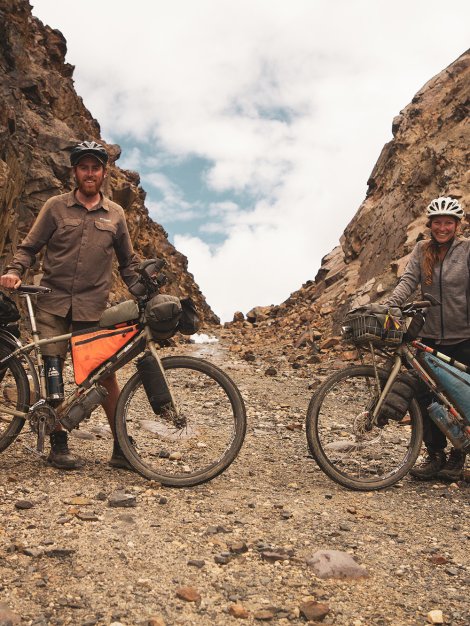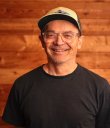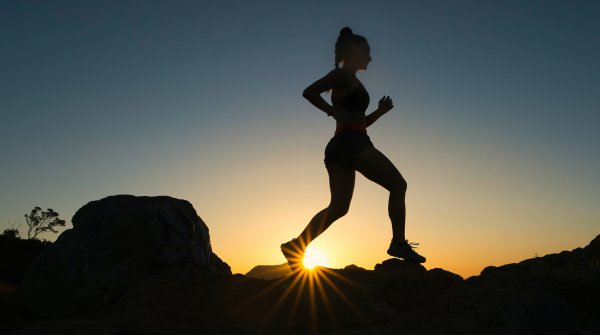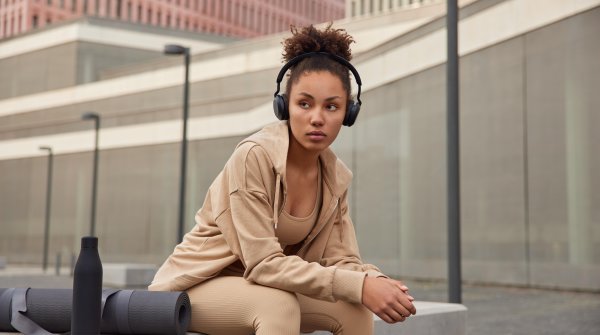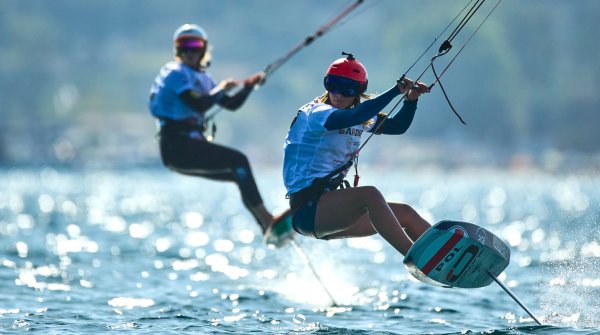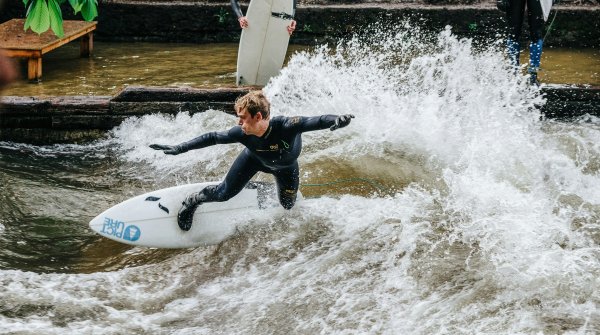- What sparked your passion for cycling?
- Which bike would you recommend to someone for such extremely long tours?
- How did you find your perfect setup?
- How did you go about planning your packing list, luggage and bags needed?
- How did you plan your supplies, i.e. food and drinks?
- Is there anything superfluous that you took with you on the bikepacking trip?
- Where can I see your film in full length?
Jérémy: My passion for being outdoors had existed for a long time. I wanted to keep it as simple as possible, so I hiked a lot. The only tool I had to get around was my own body. On my long hikes, however, it always happened that I didn't have certain practical equipment with me due to lack of space. A bicycle is a great help there. You no longer have to carry luggage on your shoulders and you can cover longer distances. And yet the physical experience is just as intense as hiking.
Sophie: My first longer bike tour was our trip from Alaska to Patagonia. I'd never done multi-day bike tours before. I hiked a lot, even for several weeks, but it would never have occurred to me to get on a bike for this. It wasn't until we both made the plan to do "The Great Traverse" that I realized we couldn't do it on foot. So we did a few bike tours together in the Pyrenees. It wasn't easy for me at first, but the big goal was a huge motivation.
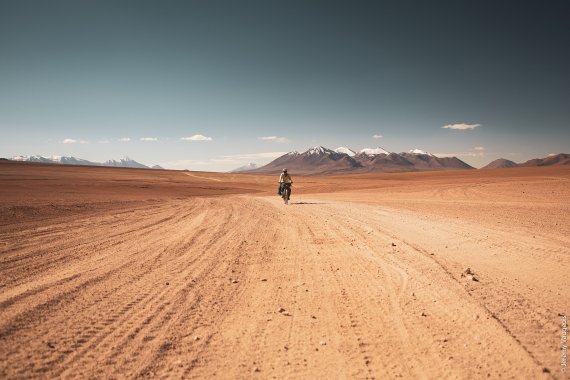
Jérémy: Above all, your bike must be robust and equipped as simply as possible. That's why we opted for Genesis Bikes equiped with Longitude steel frames. We put a lot of weight on the bike and a steel frame is flexible, unlike a carbon frame. And if it breaks, you can weld it. That's what actually happened to me in Peru when I rode through a pothole. In the next town there was a bike store where they welded me the frame again without any problems.
Sophie: My tip: Pick a bike that fits your trip! Do you ride mainly on the road? Or mainly on dirt roads? Or a little bit of everything? Then it is of course also a question of budget. A bike for 800 euros may be a perfect fit for you, and a bike for 2000 euros may not be suitable for your adventure at all. So the most important questions are: What do I want to do with the bike and where should it go?
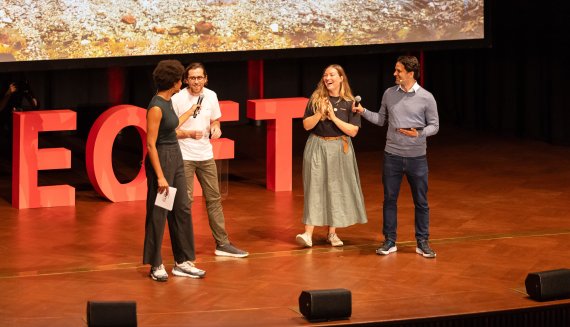
Sophie: We have been advised in various bike stores and talked to many people about our planned trip. At the Cycles13 bike store in Paris we met a very passionate salesman who took a lot of time for us and together with us has put together frame, components and all attachments.
Jérémy: He was also the first to make sure that the components were also available as spare parts in North and South America. An important point that you should definitely consider on long bikepacking trips.
Sophie: We were pretty pragmatic about that. First, we laid out the equipment we wanted to take with us. Then, in the next step, we thought about which bags we needed in which size. Beforehand, however, we also did a lot of research on the Internet and on other travel blogs. We also set a rule during the trip in order to not overpack or bring unnecessary things: "If an item is not used at least once a month, there is no reason to carry it from then on".
Jérémy: I started out with panniers on the front and rear wheels. But over time, I realized that the bike is very heavy and unwieldy with the weight on the front tire. The trick is to mount the luggage as centrally as possible on the bike. It makes a big difference whether you attach a heavy tent to the handlebars or on the front rack. With the weight on the rack, the whole bike becomes much more unwieldy.
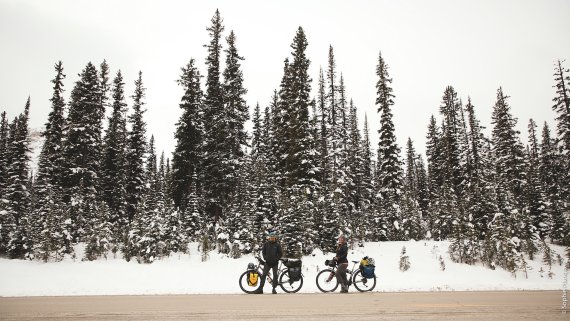
Sophie: On this trip, we planned our stages from week to week. Depending on the route, we then had to take along food for two to three days because we didn't pass through any cities along the way. So the route planning had to be designed in such a way that we would pass through cities again within a week so that we could get supplies there.
Sophie: Almost. Right at the beginning, there was a stage in Alaska where we were on the road autonomously for ten days. And later, in Bolivia, another week. That was really intense.
Outdoor emotions on the big screen
Come to OutDoor by ISPO from 3-5 June 2024 and experience the adventures of fellow outdoor enthusiasts in large format! The new OutDoor by ISPO Cinema powered by EOFT will show you the most daring stunts and captivating stories from past European Outdoor Film Tour (EOFT) seasons. An additional highlight will be the presentation of the 21st Century Adventurer Award to this year's winner. We've already got the popcorn ready!
Jérémy: Bread, cheese, sausage and pasta. Lots of pasta. And soups. Also vegetables, fruit and for breakfast especially porridge. You can also dry fruits and vegetables and eat them well during the stages when you don't have any supplies.
Sophie: To eat sensibly, the most important thing is a good stove. We had one from Primus with us, which worked great in any weather and at any altitude. There is nothing more annoying than sitting hungry in front of your stove and the part does not start or burns only on low flame.
About Sophie & Jérémy
34-year-old Sophie Planque is from Versailles and has been working as a journalist for French television for 13 years. Her main focus is on reportage and documentaries. She loves to travel and discover the world - whether on foot, on skis or by bike. Sophie is a member of the Society of French Explorers (SEF).
Jérémy Vaugeois is 35 years old and has worked for many years as a business manager in the ski industry. His passion for nature and adventure was awakened as a teenager. Thus, at the age of 19, he hiked 10,000 kilometres across Europe. Since the Great Traverse, Jérémy has worked as an assistant director for documentaries and as a drone pilot and photographer.
Sophie: I had a little Bluetooth box with me that I didn't use once. I thought maybe I'd turn on some music while I was driving, but somehow I didn't need it. It is much more pleasant to hear and listen to the music of nature if you pay attention to it. It fills the senses and makes you more aware of everything.
Jérémy: Every two months, we went through all our luggage to find things we hadn't used before. So little by little, our spare parts stock got smaller. We had really packed too much stuff. For example, you don't need 20 spare spokes, 5 are enough here.
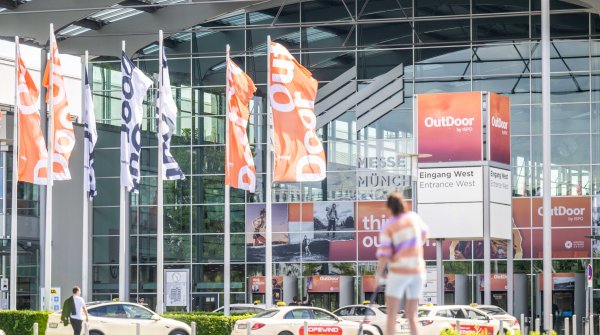 OutDoor by ISPOOutDoor in transition
OutDoor by ISPOOutDoor in transition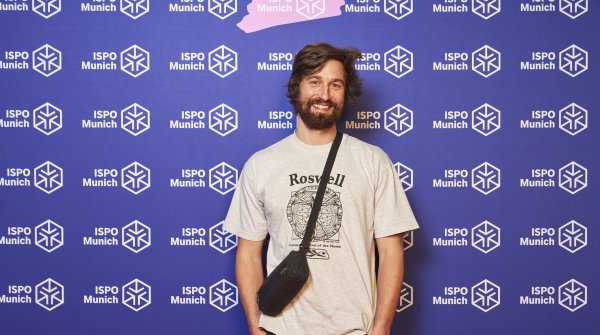
- ISPO awards
- Mountain sports
- Bike
- Design
- Retail
- Fitness
- Health
- ISPO Job Market
- ISPO Munich
- ISPO Shanghai
- Running
- Brands
- Sustainability
- Olympia
- OutDoor
- Promotion
- Sports Business
- ISPO Textrends
- Triathlon
- Water sports
- Winter sports
- eSports
- SportsTech
- OutDoor by ISPO
- Heroes
- Transformation
- Sport Fashion
- Urban Culture
- Challenges of a CEO
- Trade fairs
- Sports
- Find the Balance
- Product reviews
- Newsletter Exclusive Area
- Magazine
